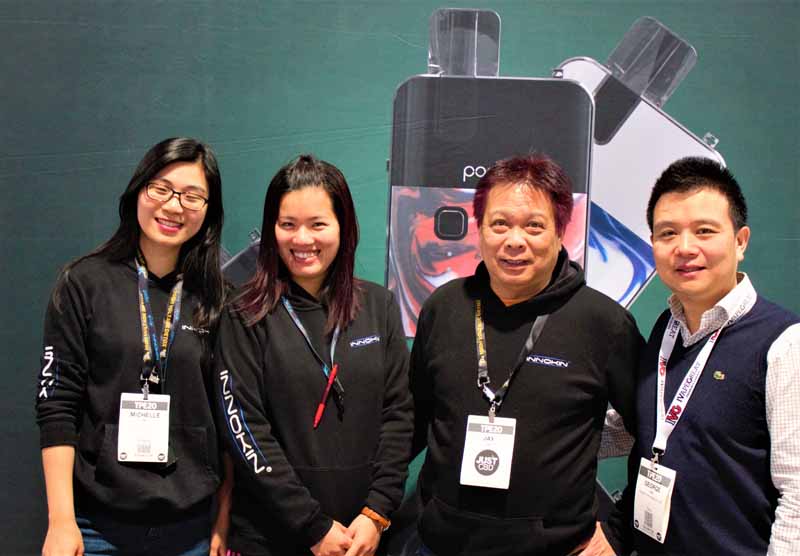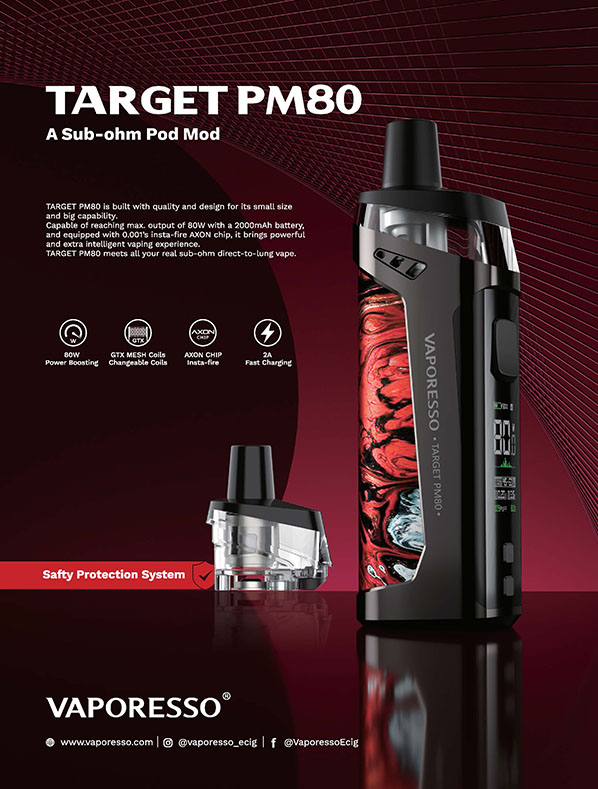Agrafiotis was referring to the Puff Bar, which is a brand that has also become synonymous with all disposable pod devices that typically have an average 280 mAh battery with a flavored pod containing from 0 percent to 5 percent nicotine. A representative of the FDA, which had a booth at the show, said he was very surprised by the number of disposable flavored pods being hawked at TPE. Both the FDA’s Center for Tobacco Products Director Mitch Zeller and FDA Commissioner Stephen Hahn have said sales restrictions will target the products most popular with youth and that policy will change accordingly.
“The good thing about this policy is we have the ability, without jumping through a lot of hoops, to change our enforcement prioritization based on the data we are getting in,” Hahn said when the flavor ban was announced on Jan. 2.
Beyond the bars, there was a very noticeable decline in the number of e-liquid suppliers at TPE. Since the TPE is the first business-to-business buying show of the year, the significantly lower number of e-liquid and even hardware manufacturers showcasing their products may be a glimpse into how the vapor industry is going to look post-May 12.
The lower number of e-liquid companies presenting is an unfortunate sign of the times, according to David Rosenthal with Ripe Vapes, which presented at the show. “Companies are so confused about what, if any, chance they have at submitting an acceptable PMTA that they have given up,” he says. “That in conjunction with [what], from what I gather, for most companies was the worst quarter in recent memory (fourth quarter 2019) due to the EVALI scare and the teen use negative press has gutted the resources for most small companies at the worst time. Quite trying times to say the least.”
Speaking at the same seminar, Chris Howard, vice president, general counsel and chief compliance officer of E-Alternative Solutions, said with a lack of enforcement from the FDA, especially concerning disposable products, banning flavors in closed pod systems has only opened up the door for other companies. “Like we’re seeing now, there’s more of a craze that’s going on to drop the types of products that the consumers wanted … It’s going to [be] a huge disadvantage [for] the independent vape shop,” Howard said. “I think every time you think you can’t be surprised in this industry, there’s another surprise, and the NJoy announcement of them pulling the product that was clearly exempt from the ban left me personally speechless.”
On Jan. 29, NJoy announced that it would voluntarily halt sales of its fruit-flavored products even though they were exempt from the FDA ban. The company announced that it would stop shipping all products except those formulated to taste like tobacco or menthol when the FDA’s restrictions took effect on Feb. 6. “For NJoy to do this, you never know what’s going on behind the closed doors of a company, so I’m sure they have a lot of motivations for this decision,” explained Howard. “But what I see as an outsider is a company that has always stood for the rights of smokers and that they need an option to quit. And they’ve also said that flavors aren’t the driver of this youth issue. And so, this decision … to voluntarily ban their own flavored disposable products is very much inconsistent with everything they’ve done previously.”
The massive recent growth of the CBD market was also reflected during the TPE. The mushrooming assortment of products containing CBD is a promising opportunity for vape shop owners looking to supplement the loss of what some show attendees expect to be a more than 50 percent decline in businesses serving the vapor industry. Many vape shop owners find the CBD market challenging because they know very little about the product, according to panelists during an education session called “Brave New World: Making the Jump into CBD.”
Bethany Gomez, managing director of Brightfield Group, an industry research group, recognized that the CBD category can be overwhelming for retailers who are beginning to turn toward CBD because products run the gamut from pillows and lotions to vape pens and edibles.
It’s the same scenario for many consumers. Jacopo D’Alessandris, president and CEO of E-Alternative Solutions, told Vapor Voice after the session that there’s currently just a lot of confusion overall around CBD. He says that nearly everyone has seemingly heard about CBD, but most people don’t really understand what the product does or the state of the current regulatory environment. For example, the FDA does not allow any CBD brand to make any health claims.
“Is it for me? Is it not for me? How much should I use? The problem is you cannot really say much [in advertising or on packaging]. You cannot make any health claim,” he explains. “Shoppers don’t have a lot of experience with CBD. They need the right price point. They need to be given a good first impression … also [many] small upstart brands may not take having the necessary ingredients seriously and [may] be competing on price. There are a lot of cowboy [brands] out there, and one day the sheriff will come to town. A lot more oversight is coming.”



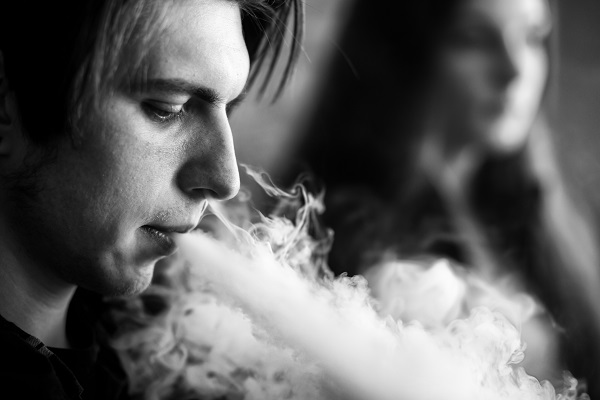
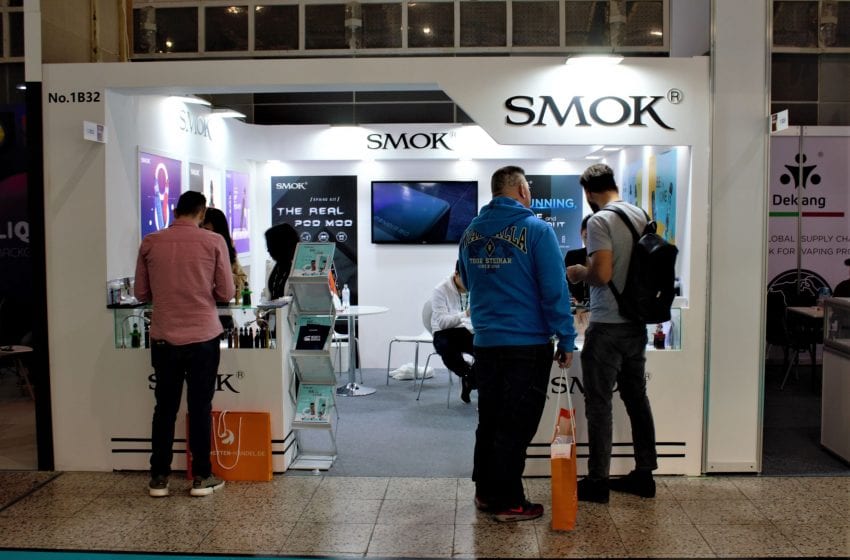
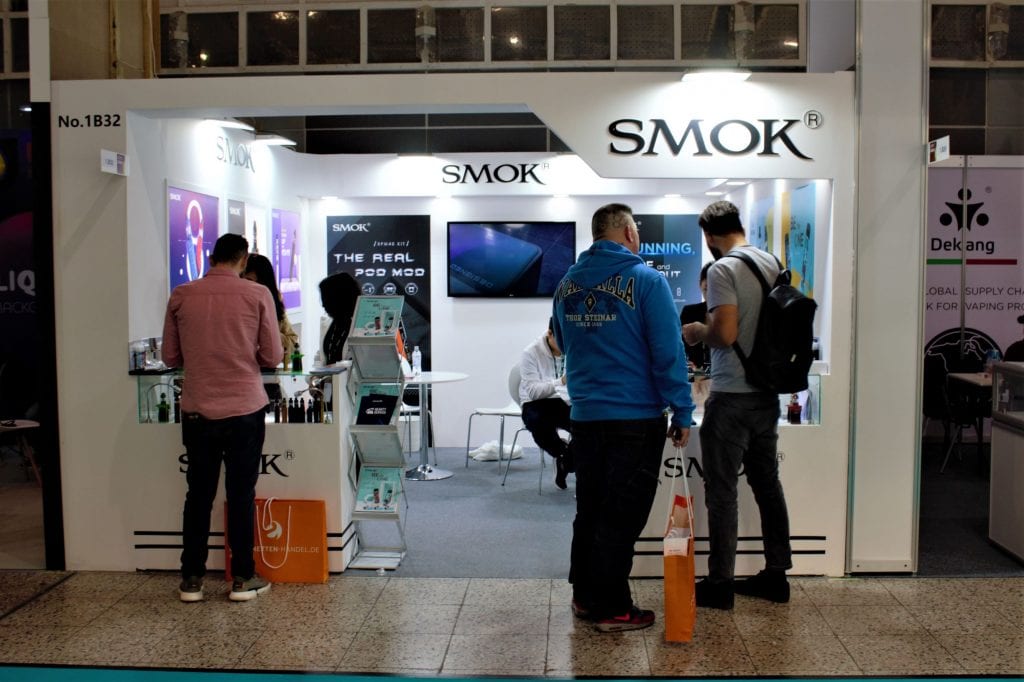

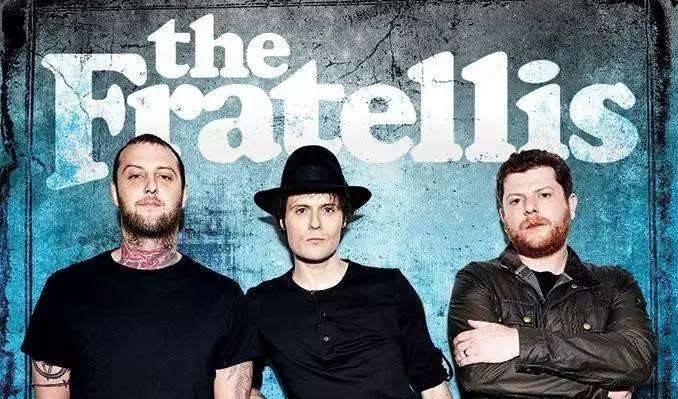
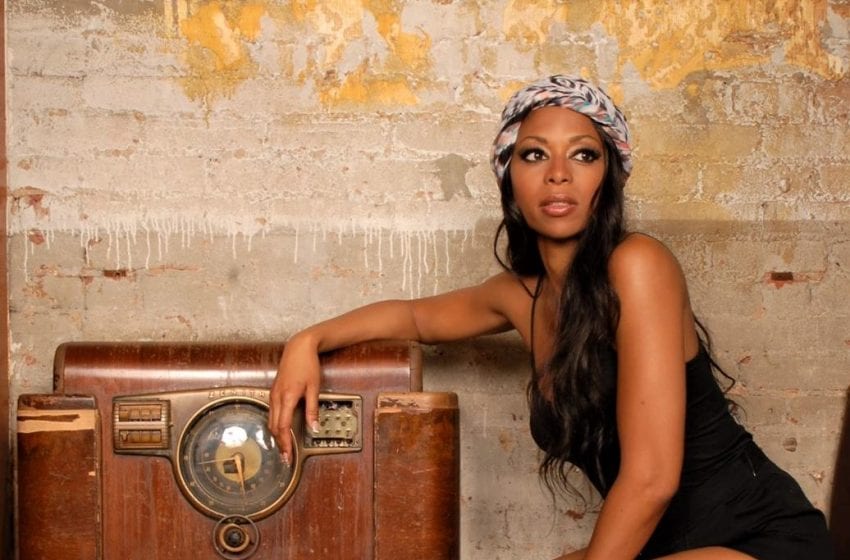

 Patrick Basham, founding director of the Democracy Institute, a politically independent think tank, said that when the Canadian government legalized medical marijuana in 2001 and legalized recreational use in 2018, the marijuana industry began to see a change in the types of businesses getting into the fast-growing segment. Speaking at TABEXPO, a vapor and tobacco trade show that was held in Amsterdam in November, Basham gave an overview of the marijuana market, detailing the entrance of major tobacco companies into the rapidly growing cannabis industry. Basham has been involved in the legal cannabis industry for more than 22 years.
Patrick Basham, founding director of the Democracy Institute, a politically independent think tank, said that when the Canadian government legalized medical marijuana in 2001 and legalized recreational use in 2018, the marijuana industry began to see a change in the types of businesses getting into the fast-growing segment. Speaking at TABEXPO, a vapor and tobacco trade show that was held in Amsterdam in November, Basham gave an overview of the marijuana market, detailing the entrance of major tobacco companies into the rapidly growing cannabis industry. Basham has been involved in the legal cannabis industry for more than 22 years. The European e-cigarette market is estimated to be worth €3.8 billion, and 3.1 percent of adults smoke e-cigarettes. The specialized vape shops are the prominent distributor. These were the major facts shared by Stavroula Anastasopoulou, senior market analyst for ECigIntelligence, a data provider for the global e-cigarette industry.
The European e-cigarette market is estimated to be worth €3.8 billion, and 3.1 percent of adults smoke e-cigarettes. The specialized vape shops are the prominent distributor. These were the major facts shared by Stavroula Anastasopoulou, senior market analyst for ECigIntelligence, a data provider for the global e-cigarette industry. The vapor industry makes an economic impact of more than $24 billion in the U.S. The news media is now being more responsible in its reports surrounding lung disease caused by black market THC vapor products. Speaking at TABEXPO, a vapor and tobacco trade show that was held in Amsterdam in November, Maggie Gowen, the executive director of the Global Vaping Standards Association (GVSA), said the e-cigarette and vapor industry in the U.S. is larger than the country’s iron and steel industry and employs nearly as many people as the commercial fishing industry. The industry has produced over 166,000 jobs, and wages and benefits earned are about $8 billion.
The vapor industry makes an economic impact of more than $24 billion in the U.S. The news media is now being more responsible in its reports surrounding lung disease caused by black market THC vapor products. Speaking at TABEXPO, a vapor and tobacco trade show that was held in Amsterdam in November, Maggie Gowen, the executive director of the Global Vaping Standards Association (GVSA), said the e-cigarette and vapor industry in the U.S. is larger than the country’s iron and steel industry and employs nearly as many people as the commercial fishing industry. The industry has produced over 166,000 jobs, and wages and benefits earned are about $8 billion.